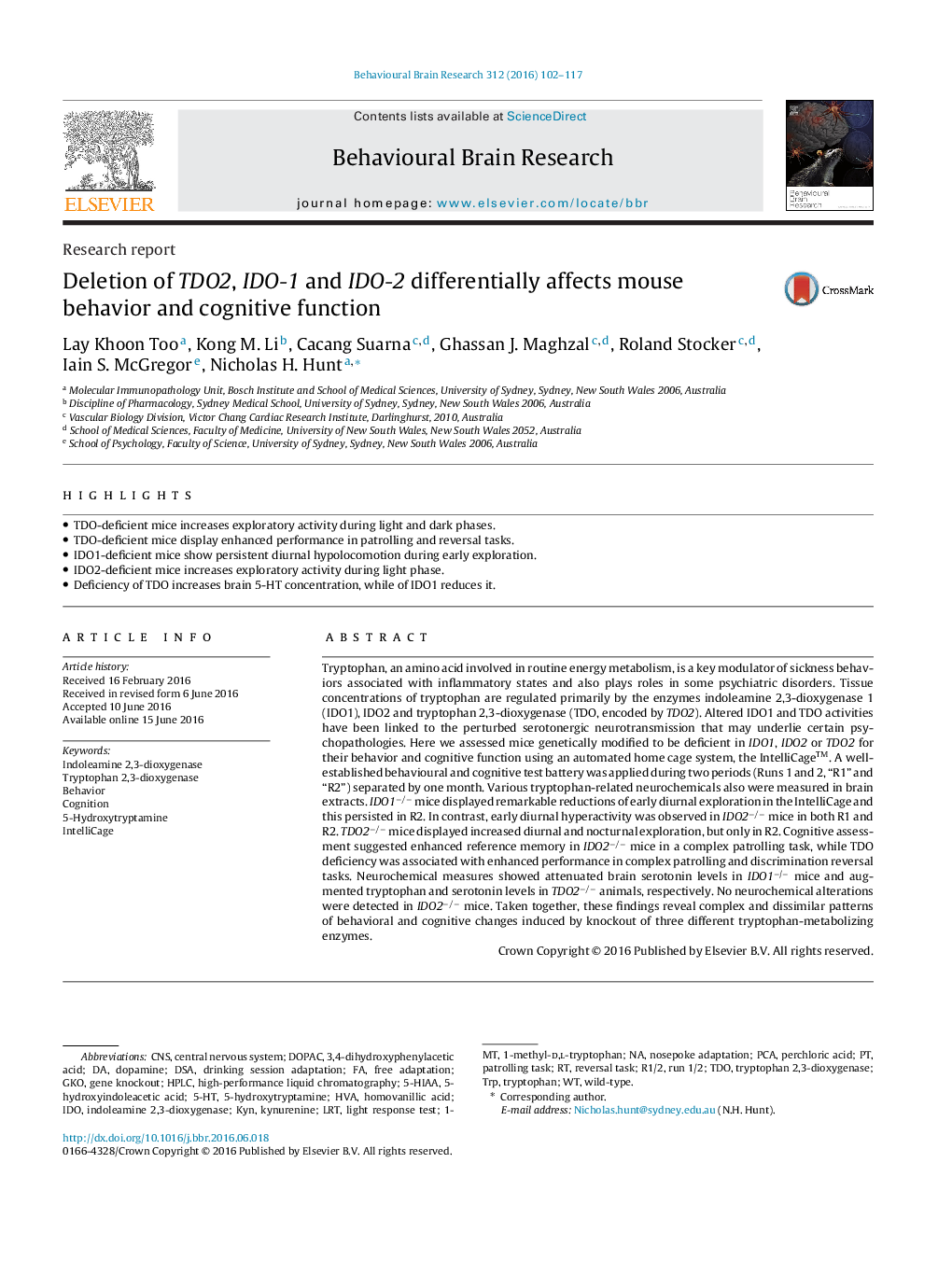| Article ID | Journal | Published Year | Pages | File Type |
|---|---|---|---|---|
| 4312062 | Behavioural Brain Research | 2016 | 16 Pages |
•TDO-deficient mice increases exploratory activity during light and dark phases.•TDO-deficient mice display enhanced performance in patrolling and reversal tasks.•IDO1-deficient mice show persistent diurnal hypolocomotion during early exploration.•IDO2-deficient mice increases exploratory activity during light phase.•Deficiency of TDO increases brain 5-HT concentration, while of IDO1 reduces it.
Tryptophan, an amino acid involved in routine energy metabolism, is a key modulator of sickness behaviors associated with inflammatory states and also plays roles in some psychiatric disorders. Tissue concentrations of tryptophan are regulated primarily by the enzymes indoleamine 2,3-dioxygenase 1 (IDO1), IDO2 and tryptophan 2,3-dioxygenase (TDO, encoded by TDO2). Altered IDO1 and TDO activities have been linked to the perturbed serotonergic neurotransmission that may underlie certain psychopathologies. Here we assessed mice genetically modified to be deficient in IDO1, IDO2 or TDO2 for their behavior and cognitive function using an automated home cage system, the IntelliCage™. A well-established behavioural and cognitive test battery was applied during two periods (Runs 1 and 2, “R1” and “R2”) separated by one month. Various tryptophan-related neurochemicals also were measured in brain extracts. IDO1−/− mice displayed remarkable reductions of early diurnal exploration in the IntelliCage and this persisted in R2. In contrast, early diurnal hyperactivity was observed in IDO2−/− mice in both R1 and R2. TDO2−/− mice displayed increased diurnal and nocturnal exploration, but only in R2. Cognitive assessment suggested enhanced reference memory in IDO2−/− mice in a complex patrolling task, while TDO deficiency was associated with enhanced performance in complex patrolling and discrimination reversal tasks. Neurochemical measures showed attenuated brain serotonin levels in IDO1−/− mice and augmented tryptophan and serotonin levels in TDO2−/− animals, respectively. No neurochemical alterations were detected in IDO2−/− mice. Taken together, these findings reveal complex and dissimilar patterns of behavioral and cognitive changes induced by knockout of three different tryptophan-metabolizing enzymes.
